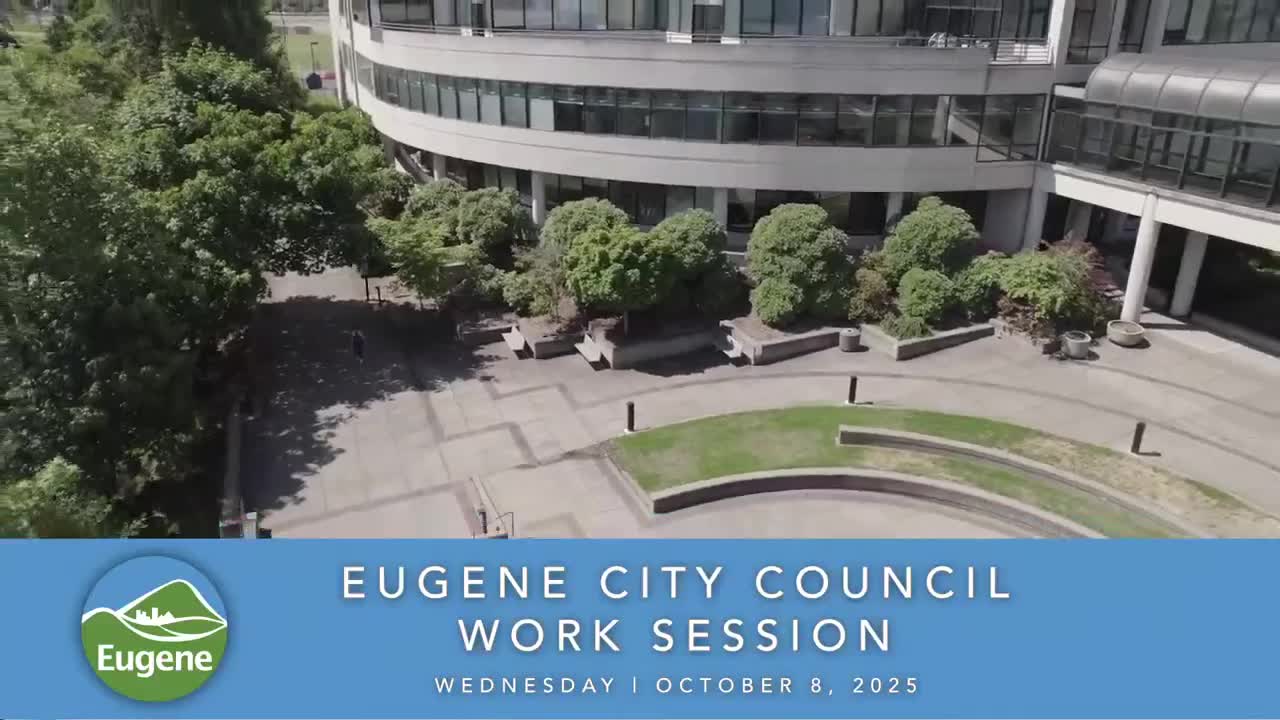Eugene council votes to pause use of Flock license‑plate cameras, asks city manager for policy review
Get AI-powered insights, summaries, and transcripts
Subscribe
Summary
On Oct. 8, 2025, the Eugene City Council voted 8‑0 to recommend pausing the city’s use of Flock Safety automatic license‑plate recognition cameras and asked the city manager to return with a broader policy discussion and options.
On Oct. 8, 2025, the Eugene City Council voted 8‑0 to recommend pausing the city’s use of Flock Safety automatic license‑plate recognition (ALPR) cameras while the council pursues a broader policy discussion about surveillance, data sharing and vendor controls.
The pause came after a work session in which Chris Skinner, Eugene’s chief of police, presented technical and operational details about the cameras, the grant that funded them and the contractual changes the city negotiated with Flock Safety. Council members raised repeated concerns about third‑party access to data, vendor trustworthiness and the limits of council authority over contracts.
Chief Skinner said the ALPR system was acquired using a state grant from the Oregon Criminal Justice Commission and described ALPR as “a crime‑fighting tool.” He said the cameras capture still photographs of vehicles and license plates in the public right of way, do not perform facial recognition and do not cross‑reference license plates with DMV records, creating a standalone database of images with date, time and location. Skinner said the city has opted out of Flock’s nationwide data‑sharing network so “no entity outside Oregon can access EPD’s image database.”
Skinner told the council the cameras and supporting software are hosted in Amazon Web Services government cloud and that Flock’s standard retention practice is hard deletion after 30 days. He said the city negotiated contract changes that add language on anonymized plate data, reduced breach‑notification windows, and limits on where data may be stored. Skinner also described audit controls in the vendor portal that require an officer to select a reason for each search and to supply a case number or CAD number to link searches to an investigatory purpose.
Council members pressed for details about ongoing costs after the grant, committee and supervisor review of “hot lists,” and liability if an inappropriate search is performed. Skinner said the cameras were procured under a CJC FY23–25 grant and that the department intended to pursue future grant rounds; he said he would follow up on post‑grant cost estimates. He said supervisors validate hot‑list entries and that officers must link searches to case numbers; checks occur after an initial, often immediate, search when exigent circumstances such as a stolen vehicle are involved.
Several council members said their concern centered on Flock Safety’s corporate practices and the risk of access by federal or other nonlocal actors. “I simply don’t trust Flock,” Councilor Zelenka said during the meeting. Other councilors cited national news reports and actions by federal authorities as raising the stakes for local decisions about data collection and storage.
City Attorney Catherine told the council the city charter gives the city manager authority to execute and terminate contracts and that a council motion can only operate as a recommendation to the city manager rather than a direct operational order. The city manager confirmed the council’s motion would guide her action and said staff would return with options, including negotiation with the vendor or pursuing mutual termination; she and the city attorney warned that a grant clawback or other financial consequences could follow if grant conditions were violated.
Council debate produced an initial motion to direct the city manager to turn off the Flock cameras. That motion was made and seconded, and then substituted with a motion by Councilor Evans to pause use of the ALPR cameras pending additional council discussion and policy direction. The substitute motion passed 8‑0. The council asked the city manager to report back with next steps and options for policy and operational oversight.
The chief gave examples of investigative results the department attributes to ALPR use, including rapid recovery of stolen vehicles and arrests in felony cases; he told the council 63 arrests linked to ALPR data were felonies. Supporters of the technology said it improves victim outcomes and officer safety by quickly identifying vehicles connected to crimes.
The council asked staff to address several follow‑up items when they return, including a clear timeline for the pause, potential financial liabilities or grant repayment risks, the contract’s termination provisions, how many cameras are currently active (Skinner said about 56), and whether other jurisdictions have altered their agreements with Flock. The city auditor, Craig Rudinski, was identified as a possible partner for enhanced accountability work.
The council’s action pauses city use of the Flock ALPR system while the city manager and staff prepare additional information and policy recommendations for council consideration. The council did not direct termination of the contract; the manager and city attorney said that any termination or negotiation would be an operational step taken by the manager consistent with the charter and subject to grant and contractual constraints.
The council concluded the work session by urging staff to return with recommended next steps for policy, oversight, contractual options and a timeline for implementing the council’s direction.
